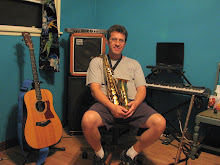On Tuesday, October 7th the Hawaiian Technology
Inventors Club will begin. Fifth grade students will be involved in
exploring hands-on activities using various electronic kits to create
electronic circuits and mini projects. Most projects will utilize
software and text sources available through the vast resources in the
open source community. This is the beginning of a science lab experience
that I hope to grow that will include many more activities in the
future.
Here is what is included in the lab so far. First of all, the computing platform that is in place is the open source, Linux based Ubuntu operating system. With this system, all the software needed for production of quality presentations, from essays, art, photo manipulation, and pamphlets is available. Also, all coding software and programming languages, from Python to Java and basic Scratch is easily accessible and free. We will use the Arduino embedded micro controller as one of the platforms to learn and explore the world of programming. One reason for this choice is that students can not only put together basic circuits, but can program the parameters, frequency, and specific tasks of the performance in each circuit project created. All this is done on the Arduino Uno board and the IDE called Sketch, based mostly in C programming language. Later, I am going to look deeper into integrating the ROS library for robotics. Arduino already has a library for this, however ROS is an international robotics standard. Anyhow, the Arduino platform can be utilized in countless ways from lighting one bulb to a multifunctional robot that speaks and blue tooth controlled, by phone, computer, tablet... you get the picture.Your imagination is the only limitation. Other kits included are the Elenco electronics lab and the Elenco Snap On electronics lab. I chose the first one because you actually put together wires to create circuits (real world). The second Snap On kit is great to see the flow and the circuit itself. The last kit I have is an electronics junk box with various speakers, wire, batteries, lights, clothespins (for switches, holding light bulbs etc.), paper clips, wire cutters, magnets, bolts, on and on; it grows as I write. This is where students just put stuff together to make it work based on what they have learned previously.
The fabulous thing about this is that students can go home and do this stuff as well at a minimal cost. Even if they purchased the kits, Elenco or Arduino, we are only talking about $20 to $60 or cheaper if you go and buy everything at Alibaba.
One last detail, other elements in the lab will include using GIMP (art, image processing), Python for Kids, Audacity (multitrack sound processing, and Openshot (video, picture editing), all open source and readily available.
We will see how it works.
Here is what is included in the lab so far. First of all, the computing platform that is in place is the open source, Linux based Ubuntu operating system. With this system, all the software needed for production of quality presentations, from essays, art, photo manipulation, and pamphlets is available. Also, all coding software and programming languages, from Python to Java and basic Scratch is easily accessible and free. We will use the Arduino embedded micro controller as one of the platforms to learn and explore the world of programming. One reason for this choice is that students can not only put together basic circuits, but can program the parameters, frequency, and specific tasks of the performance in each circuit project created. All this is done on the Arduino Uno board and the IDE called Sketch, based mostly in C programming language. Later, I am going to look deeper into integrating the ROS library for robotics. Arduino already has a library for this, however ROS is an international robotics standard. Anyhow, the Arduino platform can be utilized in countless ways from lighting one bulb to a multifunctional robot that speaks and blue tooth controlled, by phone, computer, tablet... you get the picture.Your imagination is the only limitation. Other kits included are the Elenco electronics lab and the Elenco Snap On electronics lab. I chose the first one because you actually put together wires to create circuits (real world). The second Snap On kit is great to see the flow and the circuit itself. The last kit I have is an electronics junk box with various speakers, wire, batteries, lights, clothespins (for switches, holding light bulbs etc.), paper clips, wire cutters, magnets, bolts, on and on; it grows as I write. This is where students just put stuff together to make it work based on what they have learned previously.
The fabulous thing about this is that students can go home and do this stuff as well at a minimal cost. Even if they purchased the kits, Elenco or Arduino, we are only talking about $20 to $60 or cheaper if you go and buy everything at Alibaba.
One last detail, other elements in the lab will include using GIMP (art, image processing), Python for Kids, Audacity (multitrack sound processing, and Openshot (video, picture editing), all open source and readily available.
We will see how it works.

No comments:
Post a Comment